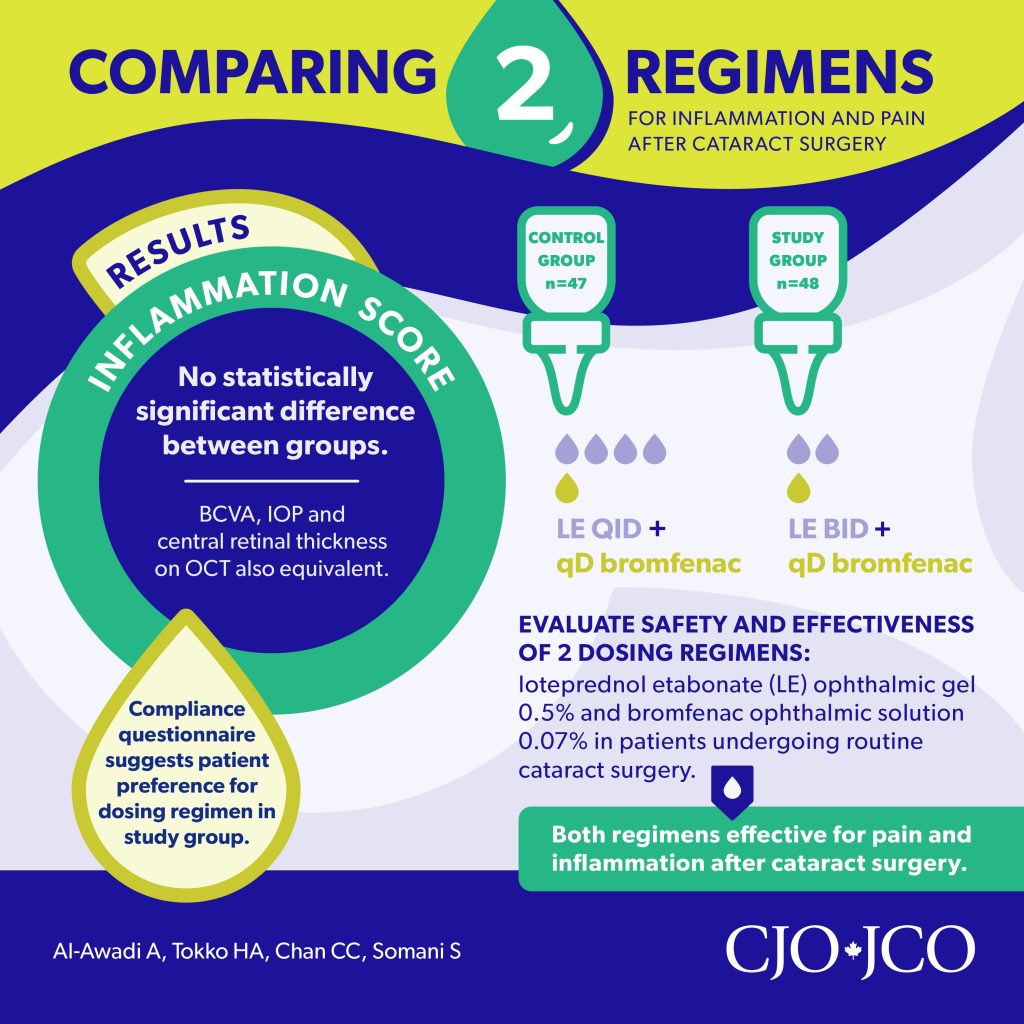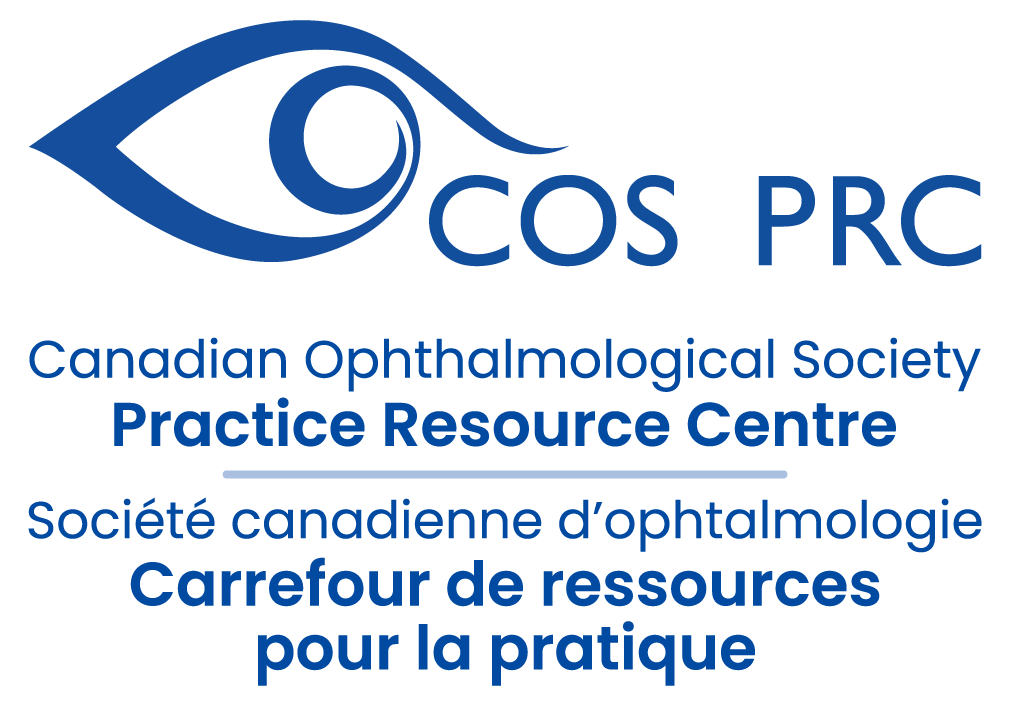CanMEDS Program: Better Practice, Better Outcomes
The CanMEDS Framework was developed by the Royal College of Physicians and Surgeons of Canada to provide key strategies for healthcare professionals to increase efficiencies in their practice, improve communication with patients and colleagues, and demonstrate stronger leadership.
The program explicitly expresses how CanMEDS roles are used in everyday clinical and non-clinical practice. The CanMEDS roles have been developed based on what patients believe are the most important competencies and abilities that physicians should possess.
Target Audience
This self-assessment program was developed with local faculty and subject matter experts to ensure a high degree of scientific integrity, rigor and balance for practitioners.
Learning Objectives
After successful completion of the program, participants will be able to:
- Use the CanMEDS Framework to improve your practice and your patient outcomes
- Identify areas for your continuing professional development using the CanMEDS Framework in all seven roles: Communicator, Collaborator, Leader, Health Advocate, Scholar, Professional and Medical Expert
CPD Credits
This program was co-developed by the Royal College of Physicians and Surgeons of Canada and mdBriefCase Group.
This activity is an Accredited Self-Assessment Program (Section 3) as defined by the Maintenance of Certification Program of the Royal College of Physicians and Surgeons of Canada, and approved by the Royal College CPD Unit. You may claim a maximum of 1 hour (credits are automatically calculated).
Access Details
The online learning activity is free for RCPSC Fellows. To access the CanMEDS online self-assessment program, please visit the mdBriefCase website for more information.
Survey of reported eye injuries from handheld laser devices in Canada
Read the full article through the Canadian Journal of Ophthalmology website: Full Article
Authors
Sami S. Qutob, Katya P. Feder, Michelle O’Brien, Leonora Marro, James P. McNamee, David S. Michaud
Abstract
Background
Unprotected exposure to handheld lasers can cause temporary or permanent vision loss depending on the laser classification.
Objective
To evaluate the occurrence of, and details associated with, reported eye injuries resulting from handheld lasers.
Methods
A 14-item questionnaire developed by Health Canada was distributed by the Canadian Ophthalmological Society and the Canadian Association of Optometrists to their respective members.
Results
Questionnaire data were available from 909 respondents (263 ophthalmologists; 646 optometrists). Response rates were 23.1% and 12.7%, respectively. Validated data were available from 903 respondents, where 157 (17.4%) reported encountering at least 1 eye injury from a handheld laser. A total of 318 eye injuries were reported with an annual increase of 34.4% (95% CI 21.6%–48.7%, p < 0.0001) between 2013 and 2017. When respondents reported on only their most severe case, 77 (53.5%) reported vision loss that ranged from minor to severe, which persisted for more than 6 months in 42.9% of the cases. Another 59 (41.3%) noted the presence of retinal damage. The prevalence of eye injuries from handheld lasers was higher for males (82.5%) than females (14.0%), more frequent among those under the age of 50years, and occurred predominately as a result of exposure from another person (67.6%) versus self-induced (26.1%) (p < 0.0001).
Conclusions
Although this pilot study permits insight into the potential prevalence of injuries resulting from exposure to handheld laser devices in Canada, the results are not nationally representative. These findings support additional surveillance activities that may inform risk assessment and potential risk management strategies.
CJO’s Inaugural Visual Abstract
The CJO’s inaugural visual abstract provides a graphical summary of the following article from the June issue: Comparison of 2 regimens of loteprednol etabonate and bromfenac for cataract surgery.

The article is also featured in the CJO’s first Resident Perspectives digest, which highlights a handful of articles from each issue with summaries written by members of the CJO’s Resident Advisory Council. These summaries are written by residents for residents and focus on issues that are particularly relevant to learners here in Canada and beyond.
Post-LASIK IOL calculations
Ms. PRK tells me she isn’t overly worried about her refractive outcome following cataract surgery. But, she’s also had previous refractive which certainly causes me to raise a red flag! This is a patient who clearly cares (or at least previously cared!) about refraction!
I’m reflecting on the Toronto Cataract Course 2019 that took place in March, where I had a wonderful time connecting with colleagues, learning new insights, and picking up pearls. The knowledge I gleaned at this meeting will definitely help me to optimize refractive results for my cataract patients.
In particular, we are all aware of the challenges in selecting intraocular lens (IOL) powers for post-refractive patients undergoing cataract surgery. Over the years, a number of different approaches to dealing with this challenge have been developed, but there is room for further improvement. The scope of this problem will only grow as we encounter more post-refractive patients requiring cataract surgery.
I would like to highlight two links that serve as the backbone of post-refractive IOL calculations in 2019. The first is the ASCRS post-refractive IOL calculator, and the second is Graham Barrett’s True K post-LASIK calculator. Armed with these two resources, I think many of us will be able to more effectively tackle these interesting cases going forward.
ASCRS post-refractive IOL calculator: http://iolcalc.ascrs.org/ – please be mindful to pick the appropriate previous refractive surgery along the top.
The Barrett True K calculator: http://www.apacrs.org/barrett_true_K_universal_2/. With this calculator, please be sure to select the appropriate previous refractive surgery from the drop down menu.
Recommended by Dr. Amandeep Rai
Amandeep Rai, MD, FRCSC
Practice Resource Centre Committee Member
Finessing your Retinopathy of Prematurity (ROP) Skills
Just recently, an ophthalmology resident that was nearing the end of their pediatrics rotation said to me, “All the ROP babies we have screened together have no ROP or ROP not requiring treatment. I’m afraid that when I go into practice I might not be confident enough to call Type I ROP. What should I do?”. Initially my first obvious answer was to recommend what I did in residency – see more patients together and continuing to review the ROP criteria and standard photos. However, I then recalled a great online ROP case-based training tool that had become available when I was in fellowship, Retinopathy of Prematurity: Case-Based Training, available through the American Academy of Ophthalmology website.
This interactive tool provides 20 cases of varying severity including a tutorial, if needed, to review how to diagnosis and when to treat ROP. Each case provides the birth weight, gestational age, postmenstrual age, six standard ROP imaging views for each eye, and selections for your specific diagnosis and follow-up. Although it may sound straightforward, some of the cases really get you thinking about whether they truly meet the criteria for treatment based on the Early Treatment of ROP (ETROP) study. Some of the cases are so challenging that at the recent ROP Update Conference – which is an accredited biennial meeting of ROP gurus and neonatologist that I also highly recommend – the exact same images and criteria were shown to the attendees and they were asked to respond resulting in varying diagnoses and management plans. As such, the training tool is great for residents, fellows, and any comprehensive, pediatric, or retina specialist performing ROP screenings who want to ensure their skills are up to date.
You do not need an AAO account if you would like to access the education module for pure learning purposes. However, if you are wanting the self-assessment credits for the activity you will need to be an active member of the AAO.
Retinopathy of Prematurity: Case-Based Training, available through the American Academy of Ophthalmology website.

Recommended by Dr. Christine Law
Christine Law, MD, FRCSC
Practice Resource Centre Committee Member
Neuro-Ophthalmology Virtual Education Library
The Neuro-Ophthalmology Virtual Education Library (NOVEL) has been one of my favorite educational resources as a resident and still continues to be one that I go back to as part of my general practice. Neuro-ophthalmology cases can sometimes be hiding amongst blurry vision and glaucoma suspect referrals. They somehow always seem to find a way to sneak into my clinics! I do find it helpful to refresh myself on neuro topics from time to time and for me a video is worth 1000 words. NOVEL is an amazing open access, repository of digital materials that may be used for education and research purposes. This is a great place to access images and videos for presentations, review key neuro-ophthalmology concepts and also as a place to submit interesting cases.
Last month I was responsible for organizing an introduction to ophthalmology workshop for a group of med 2 students, and I ended up using several clinical examination videos to help highlight key exam techniques such as the pupillary exam and extra ocular motility testing. One of the other great features is being able to access all the presentations from the Annual North America Neuro-Ophthalmology Society (NANOS) meetings through the site. I recently came across this nice series of presentations from the 2016 meeting, that reviews OCT use in neuro-ophthalmology.
Reviewing these videos could easily could be made into a Section 2 MOC Personal Learning Project which would give you 2 credits per hour.
Check out NOVEL today!
Recommended by Dr. Anu Mishra
Anu Mishra, M.D., MSHPEd, FRCSC
Practice Resource Centre Committee Member
Non-Infectious Uveitis – What’s Best for my patient: Local or systemic treatment?
The COS is pleased to provide access to the presentations from the co-developed symposium Non-Infectious Uveitis: What’s Best For My Patient: Local or Systemic Treatment?, which took place at the 2018 COS Annual Meeting in Toronto, Ontario. Through these presentations, International and Canadian expert faculty lead a discussion around the various treatment strategies for uveitis, how to choose the most appropriate line of therapy for different uveitis presentations. A novel model of collaborative care between ophthalmology and rheumatology was also presented. Below, you will find a video of the presentation by each speaker.
CPD credits: Scanning resources that are relevant to your professional practice by enhancing your awareness of new evidence, perspectives and findings can be claimed as Section 2: Self-Learning under Scanning in MAINPORT with the MOC Program of the Royal College of Physicians and Surgeons of Canada.
Presentation 1: Use of Anti-VEGFs in Uveitis
Dr. Amin Kherani reviews the epidemiology and pathogenesis of VEGF, then explains the management of uveitis and the role of anti-VEGF therapy.
Presentation 2: Topical and Injected Corticosteroids: When are they appropriate?
Dr. Chloe Gottlieb discusses the appropriate use of topical and periocular steroids for treating uveitis, the steroid-related complications that limit this use, and the benefit of additional therapies.
Presentation 3: Intraocular Implants vs. Immunosuppression
Dr. Marc de Smet covers conventional uveitis medications, and compares immunosuppressive treatment options.
Presentation 4: Immunosuppression for Uveitis: What, when, how, and by whom
Dr. Larissa Derzko-Dzulynsky expands on the area of immunosuppression for uveitis, highlighting first line and second line treatments, including biologics.
Presentation 5: Collaboration Between Ophthalmologists and Rheumatologists for Patients with Uveitis
Dr. Olga Ziouzina presents a collaborative care model for uveitis treatment, drawing from her own experience at a combined multidisciplinary uveitis clinic in Calgary.
Panel Discussion
At the end of the session, moderator and Chair, Dr. Eric Fortin leads the audience and faculty through a series of questions related to Non-Infectious Uveitis: What’s Best for my Patient: Local or Systemic Treatment?
In collaboration with the Canadian Ophthalmological Society, the Canadian Retina Society, and the Canadian Uveitis Society. This symposium was co-developed with AbbVie and was planned to achieve scientific integrity, objectivity and balance.
This resource is only available in English.
CSI: Cataract Surgery Investigation
Symposium Resources
The COS is pleased to provide access to the presentations from the co-developed symposium presented at the 2018 COS Annual Meeting, CSI: Cataract Surgery Investigation. Dr. Ike Ahmed, along with a team of forensic ophthalmologist investigators, presented three different and engaging cases, unveiling clues to analyze the causes of poor outcomes in cataract surgery patients. They discussed tools and strategies to prevent these outcomes from occurring in future patients. Below, you will find video presentations and handouts on complicated cataract surgery.
CPD Credits
Scanning resources that are relevant to your professional practice by enhancing your awareness of new evidence, perspectives and findings can be claimed as Section 2: Self-Learning under Scanning in MAINPORT with the MOC Program of the Royal College of Physicians and Surgeons of Canada.
Episode 1: Residual Sphere
Join forensic expert Dr. Amandeep Rai on his investigation of a spherical refractive error after cataract surgery. Do you have what it takes to uncover the suspect in this refractive surprise?
Episode 2: Astigmatism Post Toric
Special Agent Dr. Rosa Braga-Mele tackles a complicated case of astigmatism post TORIC IOL implant. Can you catch the perpetrator?
Episode 3: The Miniature Ghost
Follow seasoned investigator Dr. Guillermo Rocha as he puts together clues to uncover the truth about an apparent ghost. What will you notice at the dysphotopsia crime scene?
Episode 4: CSI Case Discussions
In the last episode of this season, members of the investigative team field questions and discuss their challenging cases, including the use of different formulas and calculations and the implementation of new technologies.
This symposium was co-developed with the Canadian Ophthalmological Society and Alcon in order to achieve scientific integrity, objectivity and balance.
This resource is only available in English.
J. Pinto & Associates Inc. Publications
J. Pinto & Associates is a healthcare management consulting firm that focuses on strategic business planning, operations and marketing interests of pharmaceutical companies, basic science centers, university departments, hospitals, multi- specialty clinics and single specialty facilities.
John Pinto is the country’s most-published author on the subject of ophthalmic practice management. More than 95% of all services have been to ophthalmic practices ranging from modest solo ophthalmology practices, to higher-volume cataract, refractive surgery and retinal market leaders and teaching centers.
Target Audience
Publications are geared towards physicians and administrators who wish to learn new skills and management skills. The resources serve as a guide to strengthen ophthalmology practices and assist ambitious surgeons to build practices of distinction.
Access the J. Pinto & Associates website for recent articles and publications. His numerous books are available from ASCRS/ASOA.



